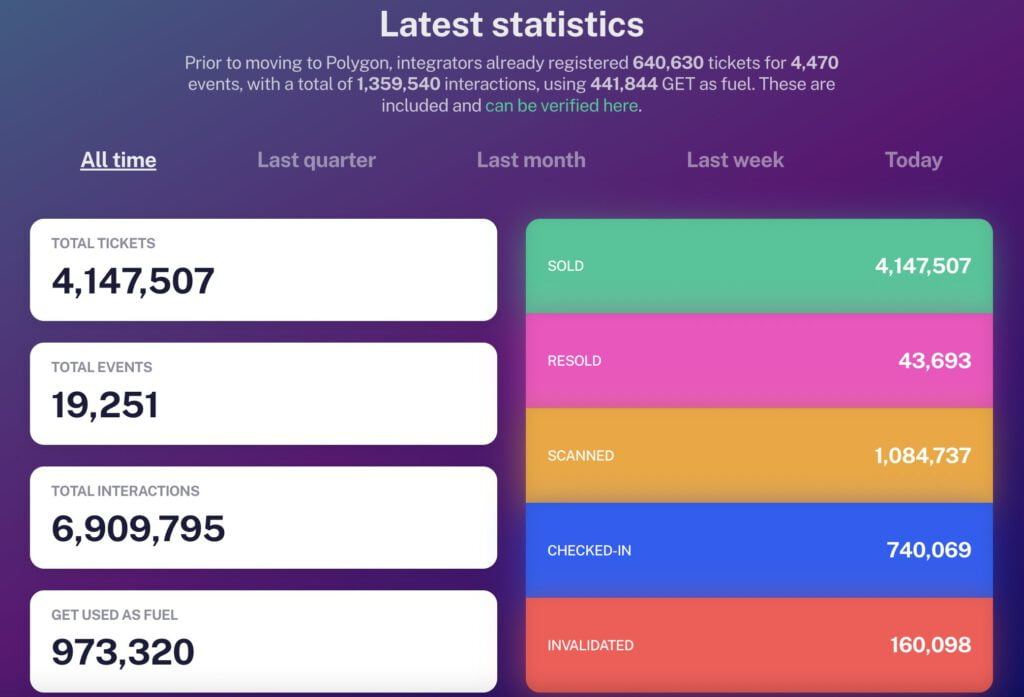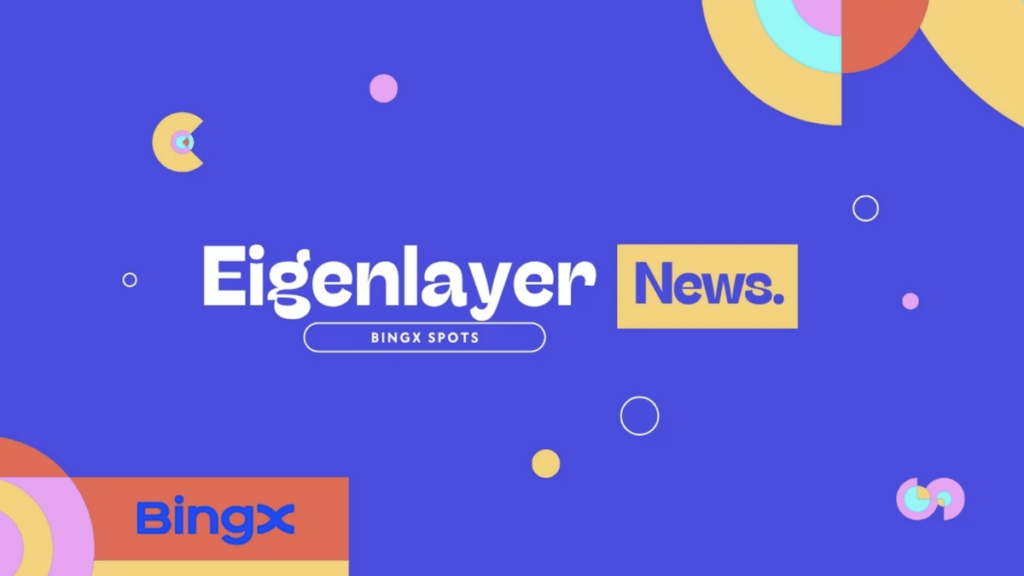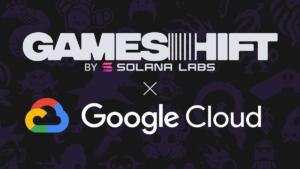In a move set to challenge the contemporary approach to event ticketing, GET Protocol, a pioneer in NFT ticketing, has successfully garnered a significant investment of $4.5 million. This stride forwards is not just a victory for the startup but also poses a real challenge to the monopoly of traditional ticketing companies, potentially signalling a shift in the dynamics of the industry.
Disrupting Traditional Ticketing
Established in 2016 by Maarten Bloemers in Amsterdam, GET Protocol operates as an NFT ticketing solution designed to bridge mainstream audiences to web3 on a large scale. Creators and ticketing companies employ GET Protocol’s products for this new approach to ticketing.
POV: You’ve just discovered NFT Ticketing as a usecase and want to know all about it.
— GET Protocol ✊🎟️ (@GetProtocol) July 11, 2023
Here's an introduction to the protocol that's leading the #TicketingRevolution with a suite of innovative tooling for creators, event organizors and fans around the world. ✊🎟️
1/8 pic.twitter.com/gyvnyjUxgq
Over 1 million tickets have been processed thus far, and the innovation could challenge Ticketmaster’s hold on the worldwide event ticketing space. In 2022, Ticketmaster recorded an impressive financial performance, reporting revenues of $12.3 billion. This figure showcases a remarkable growth, soaring from the previous year’s revenue of $6.3 billion in 2021. Annually, Ticketmaster handles the sale of nearly 500 million tickets, spanning a vast array of concerts, events, and games. Additionally, the company’s websites attract over a billion visits each year, demonstrating its substantial presence in the ticketing industry. The lack of competition for ticketing giants was the subject of a Senate Judiciary Committee hearing in January and Ticketmaster was also blamed for ruining the chance for some fans to see Taylor Swift last year.
Visions for Web3 Ticketing
This recent investment allows for the protocol’s continual operations worldwide after successfully securing backing for the utility token of GET Protocol (GET) via an initial coin offering in 2017. The strategic alignment this round facilitates further enables GET Protocol to break into new markets and poses a significant disruption to the conventional ticketing industry. The investment round was spearheaded by Flow Ventures, with substantial participation from an array of investors, including prominent Web3 veterans such as Animoca Brands and the Tezos Foundation.
Maarten Bloemers, CEO and co-founder of GET Protocol expressed his excitement over this milestone, stating, “We are thrilled to have completed this important step for the protocol. After laying low and building out the tooling that generates significant interest from the biggest decision makers in the events industry, we are now stepping into the spotlight.”
Flow Ventures also weighed in on the importance of NFT ticketing, saying, “Ticketing is one of the few web3 applications that everyone agrees on, but very few people work on. That’s because it’s an incredibly hard industry to penetrate. We strongly believe this will be one of the first web3 projects that becomes mainstream.”

The Functionality and Success of GET Protocol
GET Protocol grants total control over ticket sales and trades from when the first ticket is sold until the last ticket is scanned. This protocol allows organisers to seamlessly tap into NFTs. The platform has introduced several innovative features, including evolving collectibles for sports fans and the on-chain pre-funding of future events for independent artists.
To date, the protocol’s tooling has enabled the issuance of over 4 million blockchain-based tickets for artists including Ne-Yo, Gucci Mane, Lewis Capaldi, and Louis C.K., among others. These tickets are provided through integrated ticketing companies worldwide. Impressively, not a single ticket issued by the protocol has been scalped or resold outside the conditions set by an event organiser. Thus, proving the power and potential of GET Protocol in bringing the ticketing industry forward.
Thoughts on the NFT Ticketing future
The NFT ticketing space is modernising the traditional framework of event ticketing across various industries. For instance, in air travel, NFT tickets offer both travelers and carriers blockchain benefits. As seen with Flybondi’s initiative, passengers can purchase NFT tickets in advance without specifying travel details or passenger identities, providing flexibility in travel planning. This advantage simultaneously allows airlines to reduce customer service expenses and increase revenue through trading fees.
In the world of concerts and live events, NFT tickets could transform into exclusive virtual merchandise. These digital assets can carry unique content and experiences, reshaping the interaction between fans and artists. As this innovation wave sweeps across industries, the transformative potential of NFT ticketing becomes more evident, pointing towards an exciting future.
Author

Web3 advocate with a knack for breaking down complex concepts into engaging narratives.




